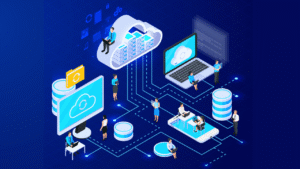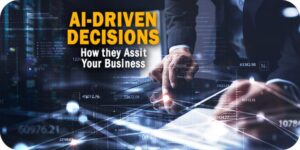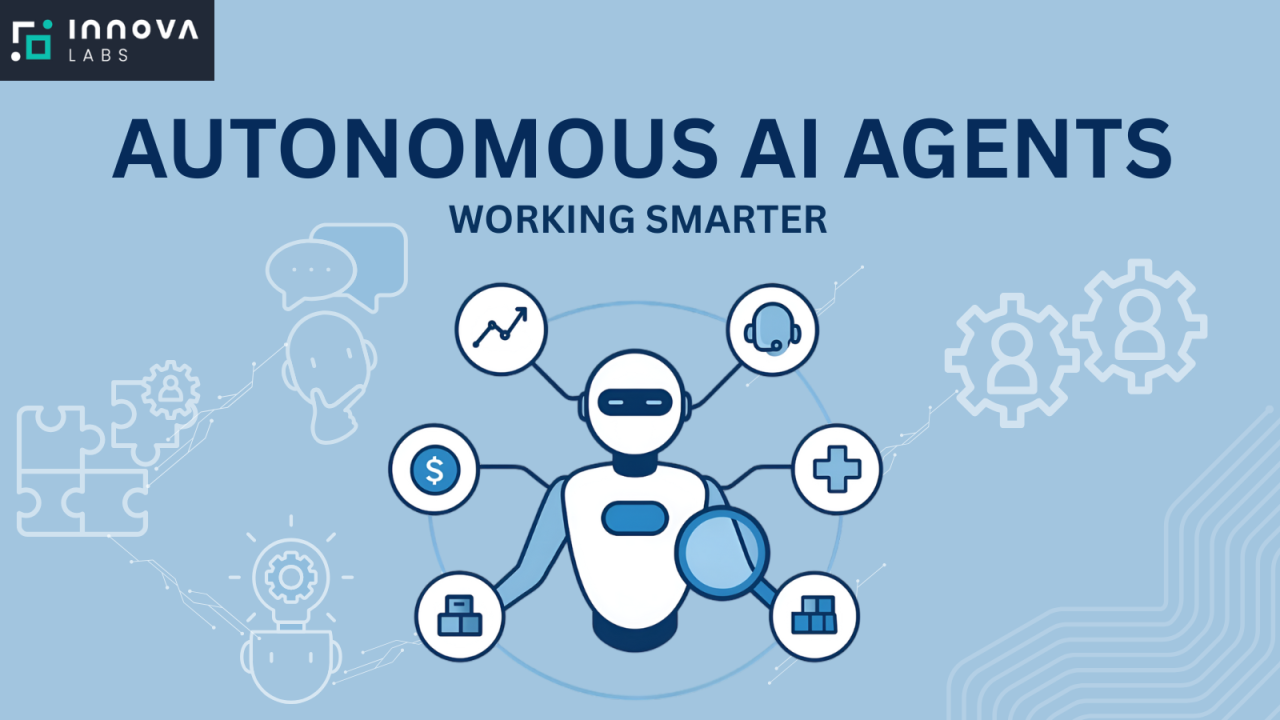AI in Business & Cloud: Transforming Enterprises in the Digital Age
Introduction
Artificial Intelligence (AI) and Cloud Computing are two of the most transformative technologies shaping today’s business landscape. When combined, they empower organizations to scale rapidly, optimize operations, personalize customer experiences, and unlock new revenue streams. Businesses across industries — from finance and healthcare to retail and manufacturing — are integrating AI with cloud platforms to accelerate digital transformation.
This article explores how AI in Business & Cloud is changing the corporate world, its benefits, real-world use cases, challenges, and future trends.
1. The Intersection of AI and Cloud
Traditionally, AI required massive computing power, storage, and specialized infrastructure — barriers for many organizations. Cloud computing changed the game by offering on-demand scalability, cost efficiency, and global access.
With the rise of AI-as-a-Service (AIaaS), companies can now access pre-trained machine learning models, natural language processing (NLP), computer vision, and advanced analytics via cloud providers like AWS, Microsoft Azure, Google Cloud, and IBM Cloud.
This synergy brings three key advantages:
-
Scalability – Cloud provides elastic computing resources for training large AI models.
-
Accessibility – Businesses of any size can use AI tools without heavy upfront investments.
-
Integration – Cloud ecosystems allow seamless integration of AI into business workflows.
2. Key Benefits of AI in Business & Cloud
a) Enhanced Decision-Making
AI-powered analytics in the cloud enables businesses to process vast amounts of structured and unstructured data. Predictive insights help leaders make faster, data-driven decisions.
b) Cost Efficiency
Instead of building in-house data centers, companies can leverage cloud-based AI platforms, paying only for what they use.
c) Automation of Processes
Cloud-based AI automates repetitive tasks such as invoicing, compliance checks, or customer support, reducing manual errors and boosting productivity.
d) Improved Customer Experiences
AI in the cloud powers chatbots, virtual assistants, and personalization engines, enabling companies to deliver tailored customer journeys at scale.
e) Business Agility
Cloud-hosted AI models allow businesses to quickly adapt to changing markets by deploying solutions globally in days instead of months.
3. Use Cases of AI in Business & Cloud
a) Retail and E-commerce
-
Personalized product recommendations using AI-powered analytics in the cloud.
-
Demand forecasting to optimize inventory.
-
AI-driven chatbots to enhance customer support.
b) Healthcare
-
Cloud-based AI diagnostic systems assist doctors in analyzing medical images.
-
Predictive analytics helps detect disease risks earlier.
-
AI models hosted in the cloud enable telemedicine and patient monitoring at scale.
c) Finance
-
Fraud detection systems powered by AI run on scalable cloud platforms.
-
AI-driven risk assessment helps banks evaluate creditworthiness.
-
Robo-advisors provide personalized investment advice.
d) Manufacturing
-
Cloud-based AI optimizes supply chain operations.
-
Predictive maintenance systems reduce equipment downtime.
-
AI improves quality assurance through computer vision systems.
e) Human Resources
-
AI in the cloud automates candidate screening.
-
Predictive models forecast employee attrition.
-
AI-driven training tools deliver personalized learning experiences.
4. Leading Cloud AI Platforms
1. Amazon Web Services (AWS)
AWS offers services like SageMaker for building ML models, Rekognition for image analysis, and Lex for conversational bots.
2. Microsoft Azure AI
Azure AI provides Cognitive Services, Azure OpenAI Service, and Machine Learning Studio for deploying models at scale.
3. Google Cloud AI
Google Cloud offers Vertex AI, AutoML, and AI Hub, with deep strengths in natural language and computer vision.
4. IBM Cloud AI
IBM Watson leads in AI for enterprises, particularly in natural language processing and customer service automation.
5. AI-as-a-Service (AIaaS): Democratizing AI
AIaaS platforms let businesses integrate AI capabilities without needing in-house expertise. Examples include:
-
Chatbots-as-a-Service (e.g., customer support bots).
-
Vision-as-a-Service (image and video analysis).
-
Language-as-a-Service (translation, summarization, and sentiment analysis).
This model has enabled startups and SMEs to compete with larger enterprises by accessing cutting-edge AI tools through the cloud.
6. Challenges of AI in Business & Cloud
While promising, integrating AI and cloud in business also comes with hurdles:
-
Data Security & Privacy: Sensitive business data stored in the cloud raises compliance concerns.
-
Integration Complexity: Legacy systems may not seamlessly connect with cloud-based AI platforms.
-
Skill Gap: Businesses need AI and cloud specialists, which are in short supply.
-
Cost Overruns: Poorly managed AI workloads in the cloud can become expensive.
-
Bias & Fairness: AI models may produce biased outcomes if not trained responsibly.
7. Future Trends in AI and Cloud for Business
-
Generative AI in the Cloud
Businesses will increasingly use generative AI models hosted on the cloud to create content, code, and simulations. -
Hybrid & Multi-Cloud AI Strategies
Companies will adopt hybrid and multi-cloud setups to optimize costs, improve security, and avoid vendor lock-in. -
AI-Powered Business Intelligence (BI)
Cloud AI will merge with BI platforms to offer real-time insights, automated reports, and predictive recommendations. -
Edge AI and Cloud Collaboration
AI models will run on edge devices for low-latency tasks while syncing with the cloud for training and scalability. -
Industry-Specific AI Clouds
We will see growth in tailored AI clouds for sectors like healthcare, finance, retail, and logistics. -
AI Governance and Responsible AI
Cloud platforms will embed ethical AI frameworks, ensuring transparency, fairness, and compliance.
8. Real-World Success Stories
-
Coca-Cola uses Microsoft Azure AI to improve demand forecasting and optimize supply chain operations.
-
Netflix leverages AWS AI for personalized content recommendations and cloud scalability.
-
Pfizer applies AI in the cloud to accelerate drug discovery and clinical trial analysis.
-
Uber uses Google Cloud AI for predictive demand analytics and fraud detection.
9. Strategies for Businesses Adopting AI in the Cloud
-
Start Small, Scale Fast – Begin with specific AI use cases like chatbots or analytics, then expand.
-
Choose the Right Cloud Partner – Evaluate providers based on security, scalability, and industry expertise.
-
Focus on Data Quality – AI is only as good as the data; invest in data cleansing and governance.
-
Upskill Workforce – Train employees in AI tools and cloud services.
-
Prioritize Security & Compliance – Implement encryption, access controls, and compliance monitoring.
10. The Road Ahead
AI and cloud computing together form the backbone of digital transformation in business. From automating processes to creating entirely new business models, the integration of AI in Business & Cloud is not just an IT strategy — it’s a growth imperative.
As generative AI, quantum computing, and advanced machine learning models become cloud-native, businesses that embrace this synergy will lead the way in innovation, customer engagement, and operational excellence.
Conclusion
The convergence of AI and cloud is redefining how businesses operate, compete, and innovate. While challenges such as security, bias, and skill shortages exist, the opportunities far outweigh the risks. By adopting AI-powered cloud solutions strategically, companies can unlock unprecedented value, increase agility, and stay ahead in an increasingly digital world.
The message is clear: AI in Business & Cloud is not the future — it’s the present. Organizations that leverage this powerful combination today will shape the global economy of tomorrow.
For quick updates, follow our whatsapp –https://whatsapp.com/channel/0029VbAabEC11ulGy0ZwRi3j
https://bitsofall.com/https-yourblog-com-bringing-ai-agents-into-any-ui/
https://bitsofall.com/https-yourblog-com-xiaomi-releases-mimo-audio/








